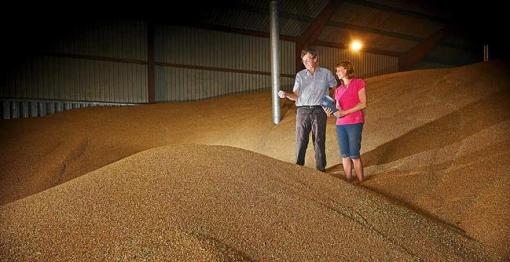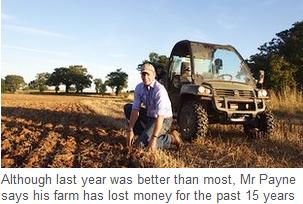 Bruce Udale and daughter Isabel Moseley check the moisture content of the wheat at their farm at Eyton, Telford
Bruce Udale and daughter Isabel Moseley check the moisture content of the wheat at their farm at Eyton, Telford
The price currently being paid for wheat has fallen from more than £200 per tonne two years ago to closer to £120 today, and Bruce Udale said that was the main drawback for farmers:
“The price is awful. At £160 or £170 it was too high, but it has gone to the other extreme now.”
The Shropshire Star then noted that there will be a good apple crop this year; will growers get a fair price?
David Handley of Farmers for Action writes:
 Grain, dairy, beef, pigs – all are suffering low prices. Farmers need to come together and stop this rot once and for all. We must all act now to protect our livelihoods, nobody else will do it for us!
Grain, dairy, beef, pigs – all are suffering low prices. Farmers need to come together and stop this rot once and for all. We must all act now to protect our livelihoods, nobody else will do it for us!
He noted grain market reports: Low moisture – good bushel weights – but no premiums being paid!
Grain merchants need to explain themselves!
Handley asks “Why is this happening? Grain farmers have worked hard in 2014 to achieve what the market requires at great cost, but their ‘reward’ is prices below cost of production. This is not sustainable.
“Yet all others in the supply chain maintain their margins”.
–


Recent Comments